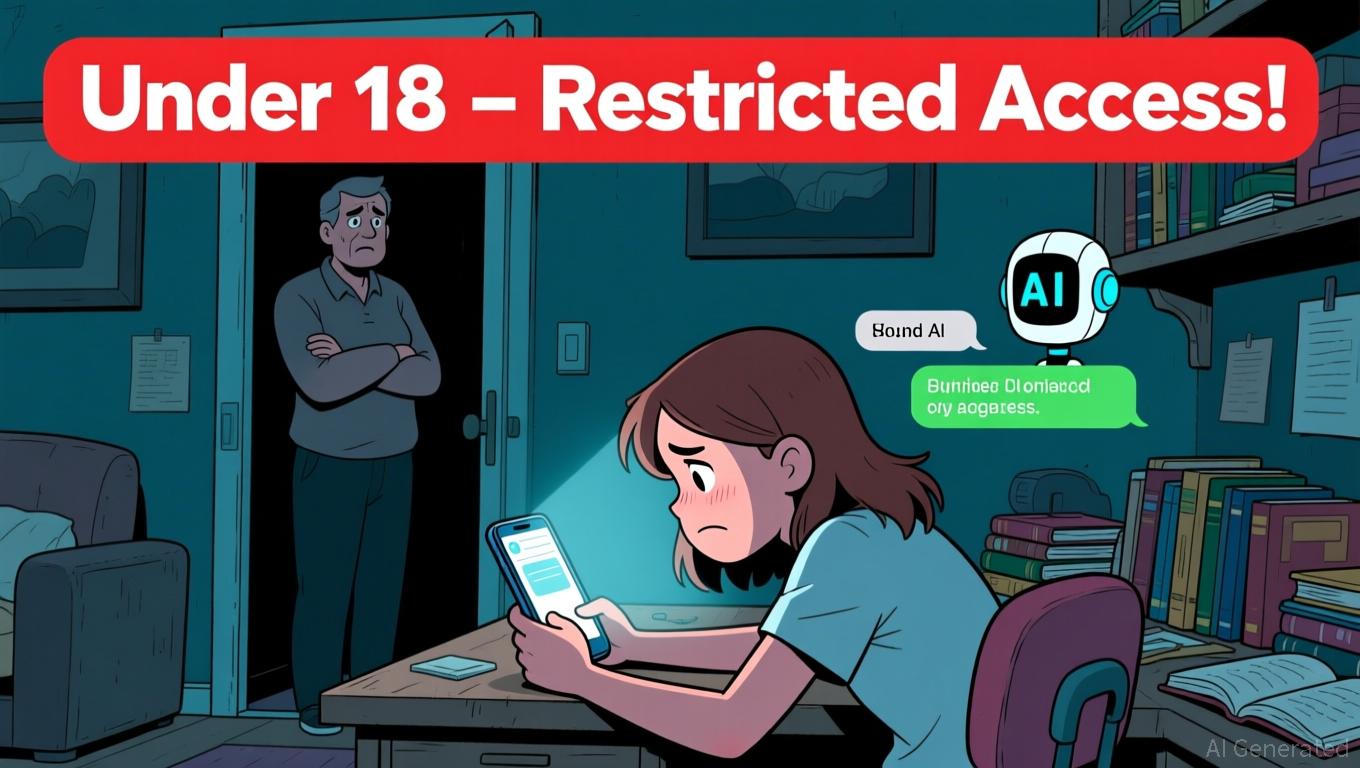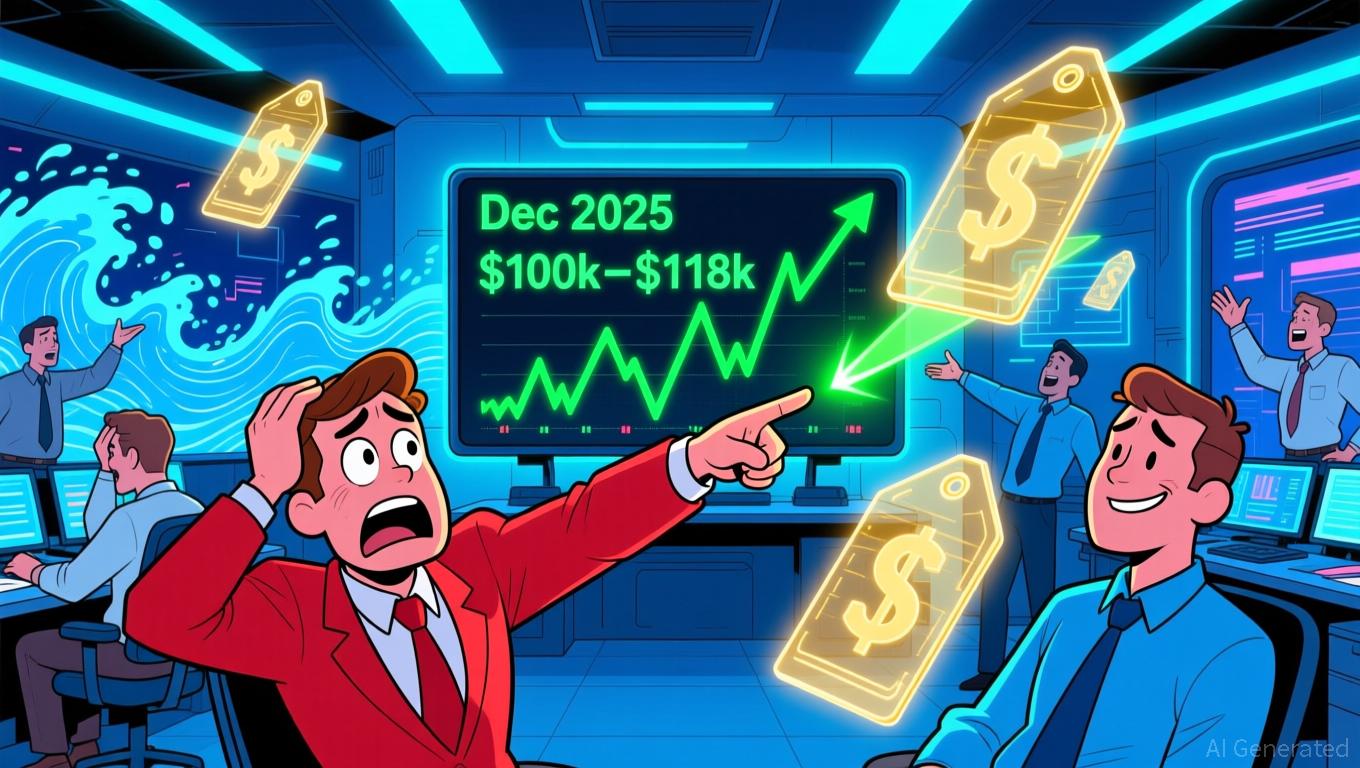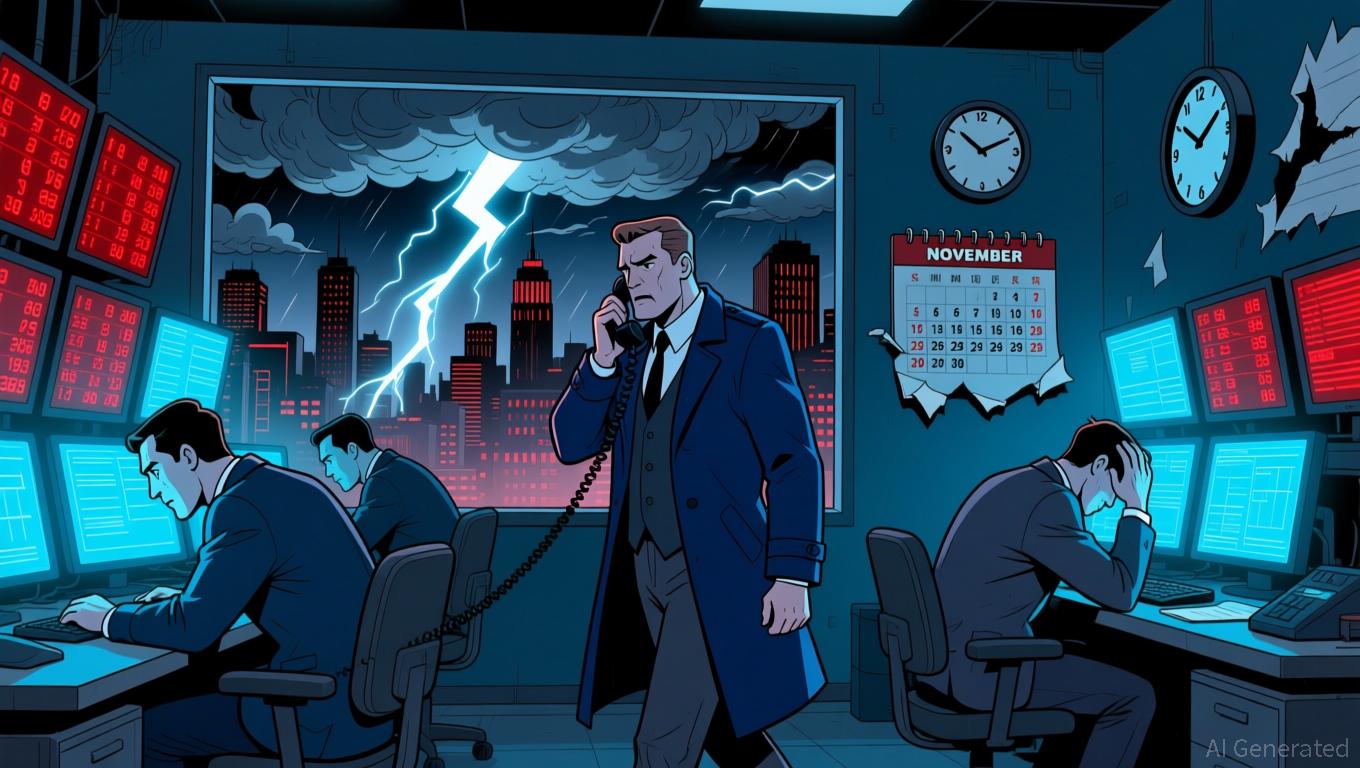Legal Concerns and Anxiety Over Mental Health Lead to AI's Ban on Teen Chat
- Character.AI bans under-18s from open-ended AI chats from Nov 25, restricting teens to guided "Stories" and video features amid mental health concerns. - The move follows lawsuits linking the app to teen suicides and addiction, including a case involving 14-year-old Sewell Setzer III. - Critics argue chatbot dependency risks persist despite new safety-focused features, with mixed user reactions and calls for broader societal solutions. - The policy aligns with industry trends as AI firms face growing leg
Character.AI, a prominent platform for AI companions, has implemented a major policy change to address growing worries about youth mental health, now prohibiting anyone under 18 from engaging in unrestricted conversations with its AI characters,
This policy update follows a year marked by increased scrutiny from the public and legal system. Character.AI has been the subject of several lawsuits, including one filed by the family of 14-year-old Sewell Setzer III, who

To help ease the effects of this restriction, Character.AI has rolled out "Stories,"
Mental health professionals have commented on the situation, highlighting the critical role of real-life social interaction for teenagers’ development. Dr. [Name], a psychotherapist mentioned in a CNBC article,
Character.AI’s new direction mirrors a larger movement within the industry. Interactive fiction has seen a surge in popularity recently,
Disclaimer: The content of this article solely reflects the author's opinion and does not represent the platform in any capacity. This article is not intended to serve as a reference for making investment decisions.
You may also like
USDe's total value locked drops by 50% even as onchain activity remains strong, highlighting the vulnerability of DeFi yields
- Ethena's USDe stablecoin TVL fell 50% to $7.6B amid yield compression and unwinding leveraged carry trades, despite rising onchain transaction volume. - The synthetic stablecoin's 5.1% APY now lags Aave's 5.4% USDC borrowing rates, triggering outflows as leverage strategies become unprofitable. - Collapsing 10x leverage loops and maturing perpetual tokens accelerated TVL decline, exposing fragility of yield-bearing stablecoins in risk-off markets. - Chaos Labs recommends lowering Aave V3 stablecoin borro
Klarna's CEO Turns Crypto Skepticism into a Stablecoin Innovation
- Klarna , a Swedish fintech , launches KlarnaUSD, its first stablecoin, after CEO Sebastian Siemiatkowski previously dismissed crypto as impractical. - Pegged to the U.S. dollar, the stablecoin uses Stripe's Open Issuance platform and Tempo blockchain, with a 2026 public launch planned. - Aimed at cutting $120 billion in annual cross-border payment fees, it targets 114 million users and $112 billion in GMV, aligning with a $27 trillion stablecoin market surge. - The move deepens Klarna's partnership with

Bitcoin News Today: Bitcoin’s $13.3B Options Expiration Depends on 15% Surge to Protect Major Positions
- Bitcoin (BTC-USD) fell 30% from its $126,000 peak to $87,080 amid ETF outflows, stablecoin liquidity declines, and leverage unwinds. - A $13.3B options expiry on Dec 26, 2025, features a $1.74B call condor bet targeting $100,000–$118,000, with profits capped at $112,000. - November saw $3.5B in Bitcoin ETF outflows, while stablecoin market cap dropped $4.6B, signaling heightened liquidity risks. - Market stability signs include a 32 RSI near oversold levels and reduced downside protection costs, though s

Bitcoin Updates Today: Bitcoin's Volatility: Surrender or Endurance from Institutions?
- Bitcoin's recent price drop and negative funding rates suggest market capitulation, with open interest collapsing 32% since late October 2025. - Institutional holdings like KindlyMD's $681M BTC stash and Harvard's ETF investments highlight growing long-term confidence in Bitcoin's stability. - Q3 2025 crypto VC surged 290% to $4.65B, while experts diverge: Standard Chartered targets $200K BTC by year-end, Kraken predicts $80K–$100K consolidation. - Macro risks including Japan's reserve rules and AI-drive
